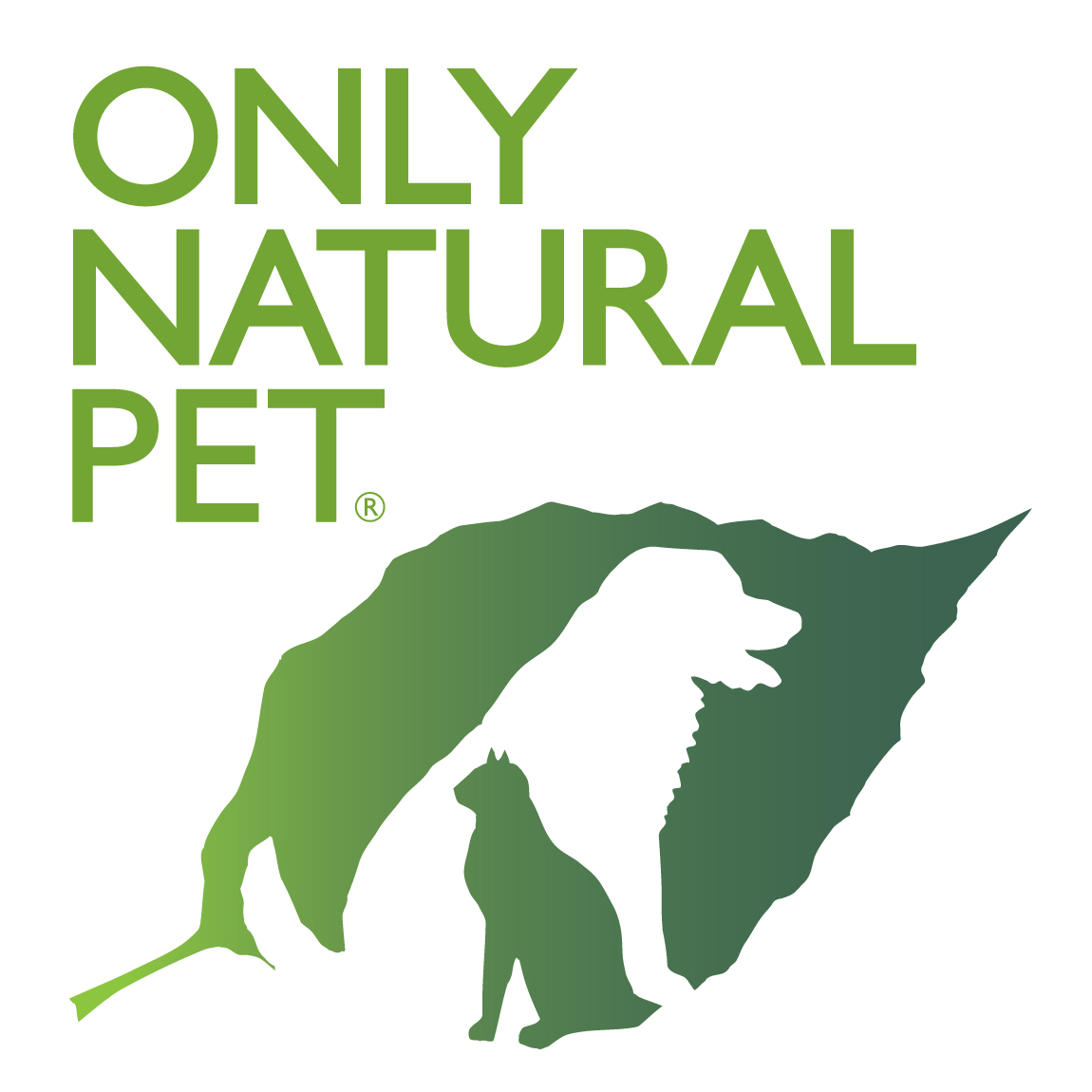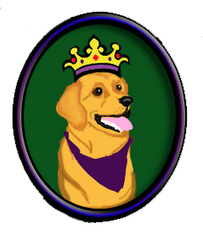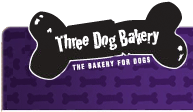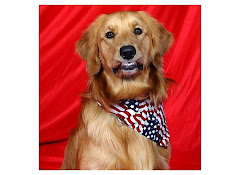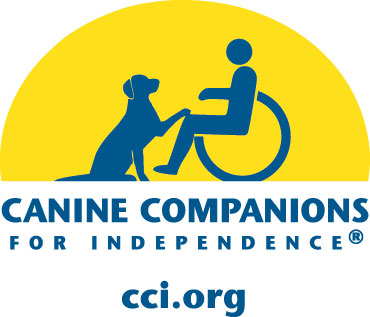Read more!

It's a fact - chewing is a natural behavior for dogs. Chewing relieves boredom or anxiety, cleans the teeth, and gives the dog something to keep it occupied. Providing your dog with something to chew on will help keep him from finding things on his own to chew (like furniture, shoes, etc.).
We recently looked at bones, both cooked and raw, and the pros and cons of each. With many people reluctant to give their dogs bones due to potential problems, what options are there? Are there safe things for them to chew? Are there chew snacks and treats that are satisfying to the dog, last more than a few minutes, won't put on too much weight, and aren't full of chemicals and preservatives?
Yes, there are a number of options available for your pup. I will start by saying that no matter what your dog is chewing on, there is a risk that it could break off a piece and choke on it. Dogs that are very strong chewers can demolish almost anything, even the so-called "indestructible" toys and chews. I have a golden retriever who proves this to me all the time.
When selecting a chew for your dog, remember to get a toy or treat that appropriately sized for your pet (no tiny chews for a Great Dane who might swallow it whole). My guys love toys with squeakers. Mostly they like to rip the squeakers out and chew them up. I have to watch them like a hawk, or avoid anything with a squeaker to begin with. Many items have the potential to cause chipped teeth, intestinal distress, or blockages.
The main point here is to ALWAYS supervise your dog when you give him a chew snack or treat.
That being said, let's take a look at some of the alternatives to bones that you can give your pet.
Rawhide:
Probably the most popular and readily available chew treats for dogs are made of rawhide. What exactly is rawhide? Rawhide is the thick inner layer of skin from cattle. The outer layer is used to make leather for shoes, etc., and the inner layer is cut and formed into chews for dogs. Rawhide is high in protein, low in fat (compared to other chews such as pig ears), and have fewer calories per ounce that most dog biscuits. The collagen in this skin layer becomes stiff when dried, but softens when moistened by your dog's saliva as they chew.
Most dogs love rawhide. It keeps them entertained and satisfies their need to chew. It helps reduce plaque build-up on your dog's teeth and massages the gums.
If you choose to give your dog rawhide, always check the country of origin on the package. If possible, only buy rawhide chews made in the USA. Rawhide is not regulated in many countries, so it is possible that the hide comes from unhealthy cattle, or that chemicals such as bleaching agents or arsenic-based products have been used to whiten and/or preserve the hide. Basted rawhide uses ingredients from companies that cater to the food industry and that must meet USDA requirements. Even rawhide from foreign import must use U.S. basting products or U.S. approved basting products.
Are there any potential problems with rawhide chews? As with any chew, yes, there are. Obviously, dogs with allergies to beef should not be given rawhide. It is possible for your dog to chew off a large piece and swallow it whole, which can cause choking. Rawhide expands when wet, so if your dog does not properly chew the rawhide before swallowing, it can expand in the intestines and cause a blockage. Chews that last longer than 5 to 7 days should be discarded and replaced due to dirt and bacteria buildup.
What about pressed rawhide? The rawhide used for these chews is generally lower-grade, less consistently light colored skins that are chopped, ground, moistened, and pressed by machine, under very high pressure, into various shapes. Collagen fibers bind the chopped rawhide together in the desired shape. Compressed rawhide is a good option for dogs who are aggressive chewers. The dog's saliva can't saturate the dense compression, making it harder for the dog to bite off large pieces and swallow them. These treats tend to last longer as well since they are harder to chew.
"Munchy" rawhide, crunchy rawhide, or rawhide novelties (whatever they might be called) are made of rawhide pieces that are chopped, ground, moistened, mixed with tapioca and food coloring, extruded by machine into desired shapes, and allowed to dry until firm. They are a decent chew treat for a quick snack or a short-term chew, as they are chewed up easily and don't last long. Try to avoid the ones with food colorings. That's just another chemical additive your pups don't need. Also, again, try to stick to the "Made in USA" criteria. Recently, manufacturers from other counties, namely China, have begun mixing higher percentages of corn stalks, wheat chaff and grain residue into ever decreasing amounts of rawhide.
Pig Ears:
Dog's love pig ears! In many parts of the world, pig ears are considered a delicacy by people (ugh). In the USA they are mainly reserved as treats for our dogs. Pig ears are high in fat and have generally low nutritional value, so they should be reserved as special occasion treats only. U.S. made pig ears and other pork hide products are far superior to imported ones. Because of the high-quality feeds used, U.S. pork hide products are larger and thicker than most imported ones. During repeated salmonella contamination outbreaks, U.S. pork hides and pig ears were consistently found to be disease-free.
Bully sticks or Pizzle sticks:
These are, um.....well, what what makes a bull a bull. They are 100% dried bull penises. They are high in protein and easily digested. They are smoked and dried. Kind of gross if you ask me, but I've yet to see a dog that didn't love them. The only drawback I have found to these is that they can be a little pricey as far as chew treats go.
Chicken jerky:
Chicken jerky is made from tenders or fillets of chicken breast that are roasted and dried. They are high in protein, low in fat, and dogs love them. There have been some controversy over the last few years about these items causing illness in dogs. The FDA has been monitoring the issue and has not found a definitive trend or consistent chemical issue. Most of these treats are imported from China. Finding U.S. made jerky is very difficult. These treats should be fed on a limited basis, and always watch for any digestive issues your dog may have. I personally use these from time to time, and haven't had any problems from them to date. I have also seen jerky made of duck, venison, or even fish.
Other assorted "body parts":
There are a number of assorted body parts that are available to your dog as chew treats. Most are high in protein, low in fat, and easily digestible. These include:
Various tendons or ligaments. They are dried, very tough, and make a great chew treat.
Tracheas, often called "Moo Tubes", are common treats, as are cows ears, lamb ears, lamb or pig tails, snouts, chins, lamb lungs, pig hearts, dried liver, and other assorted icky things that dogs love to chew.
Deer Antlers:
These are relatively new on the market. Antlers are shed by the deer each year and are a favorite treat for wild animals, even squirrels and rodents, because they are rich in minerals and calcium. They are clean, odorless, non-staining, non-greasy, and they will not crumble or splinter when chewed. They are very hard, and therefore appropriate for dogs who are aggressive chewers. Some dogs are hesitant to chew on them at first since they are odorless, but try rubbing a bit of beef broth or peanut butter on it to get your dog started, and I'm sure he'll keep chewing away.
A note about "Made in USA" products:
Keep in mind that manufacturers do not have to reveal where there raw materials come from. If the product is partially processed, packaged, and distributed in the United States, the label can state "Made in the U.S.A." If the hide or meat is imported, these other countries often use antiquated method of treating and preserving the products. Chemicals are often used in the process, and refrigeration and storage are not necessarily up to U.S. standards. If you have any doubts about a product, do some research online or call the company's customer service number to inquire.
There are also quite a few non-animal product items that your pet can chew. Next time we will take a look at some of those.
Read More......



